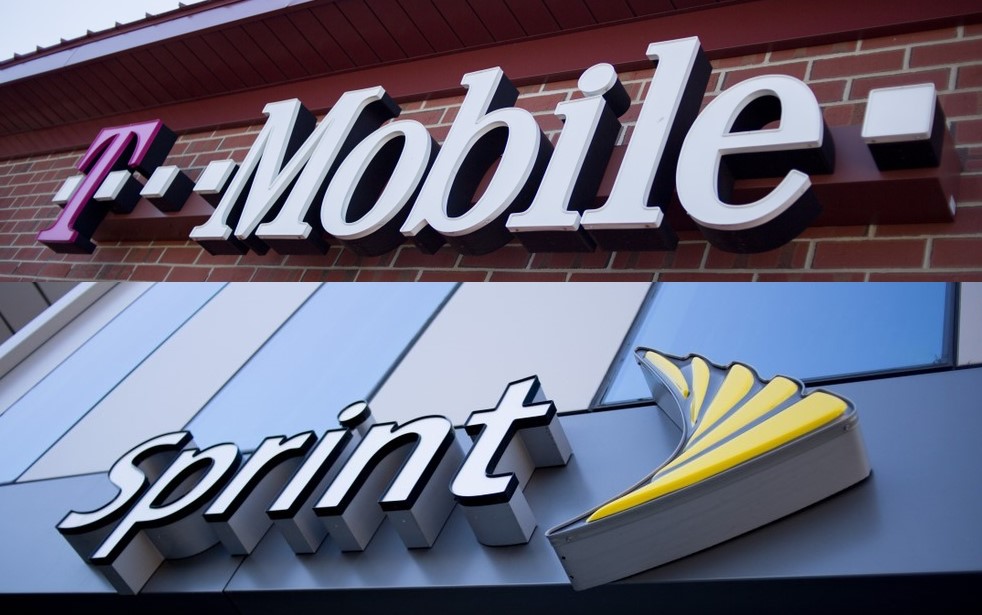On Tuesday, 10 state attorneys general filed a federal lawsuit in U.S. District Court in New York to block the $26.5 billion merger between Sprint and T-Mobile.
This is a high-profile merger that has the backing of the Trump administration. That, alone, could be enough to warrant this action by Democrats.
Attorneys general from California, Colorado, Connecticut, the District of Columbia, Maryland, Michigan, Mississippi, New York, Virginia and Wisconsin brought the suit, and all 10 are Democrats.
At the heart of the issue is the claim that the merger will not necessarily provide better cellphone networks in rural areas of the country and that prices would likely increase for said services, if the merger is complete.
Sprint and T-Mobile — who are both owned by foreign conglomerates (Japan-based Softbank owns Sprint and Germany’s Deutsche Telekom owns T-Mobile) — have suggested the merger is an effort to get ahead of the upcoming 5G rollout.
The companies said the merger is necessary to ensure they can provide the proper infrastructure for a 5G mobile network and compete with telecommunication giants Verizon and AT&T.
Others, such as labor unions and Democrat lawmakers have also suggested the merger would lead to job cuts as the combined company would look to sustain losses, if the merger were to be approved.
While on the surface, the states’ contention does make sense. However, T-Mobile went so far as to suggest it would pay fines if it did not fulfill those promises on an agreed timeline. The company also suggested it would freeze prices for three years.
There is really no way to verify the new company would fulfill the promises made for better networks and more competition in the 5G realm.
However, it is dangerous territory these states are entering by filing a federal lawsuit contesting the merger. The last time states got involved in a proposed merger was last year when five states verbally challenged the merger of Bayer and Monsanto.
The question is whether the states have legal ground to challenge an interstate business merger. And does that potential challenge supersede federal regulators’ authority to approve or deny such mergers?
Under the Clayton Act, states do have status in bringing litigation as a “parens patriae” suit. However, the court will have to weigh whether that overrides the federal government. While the Federal Trade Commission — the federal authority that decides such matters — has yet to rule on the Sprint/T-Mobile merger, the three Republican-appointed members of the commission have indicated they would approve the move.
The Commerce Clause of the U.S. Constitution clearly gives Congress the authority to regulate interstate commerce and to regulate commerce between individual states. However, the confusion comes in what defines “interstate.”
Here’s a case regarding federal antitrust suits:
- Standard Oil v. United States (1911) – In this case, the U.S. Supreme Court ruled Standard Oil (owned by J.D. Rockefeller) had violated antitrust laws by controlling 90% of the U.S. oil production
All of this, however, could set a very dangerous precedent mixing politics with business.
Are these state attorneys general protesting the move because of an honest fear of antitrust, or because of political partisanship? My gut leans toward the latter here. This is a high-profile merger that has the backing of the Trump administration. That, alone, could be enough to warrant this action by Democrats.
One thing to consider is if the merger goes through, it still leaves a plethora of cellphone companies out there to provide service. What’s more, neither Sprint nor T-Mobile are nearly as far along in the race for 5G as Verizon or AT&T, such as Texas v. Gearhart Industries (1988).
Research will show that many antitrust cases brought by states typically end in either a memorandum of understanding or a settlement where the companies in question will agree to adhere to certain rules following the merger. This would be the same as the aforementioned promises made by T-Mobile.
The bottom line is that while states do have the right to challenge what they perceive to be antitrust violations, there is nothing to suggest that the merger of T-Mobile and Sprint would do that. In fact, this merger wouldn’t even result in the largest telecom company.
We have to be very careful when it comes to government regulation of business, especially when it comes to mergers and acquisitions. In a situation like this, we are looking at a merger with national implications, not just state ones. In this instance, it is the guidance of the federal government that should prevail.
